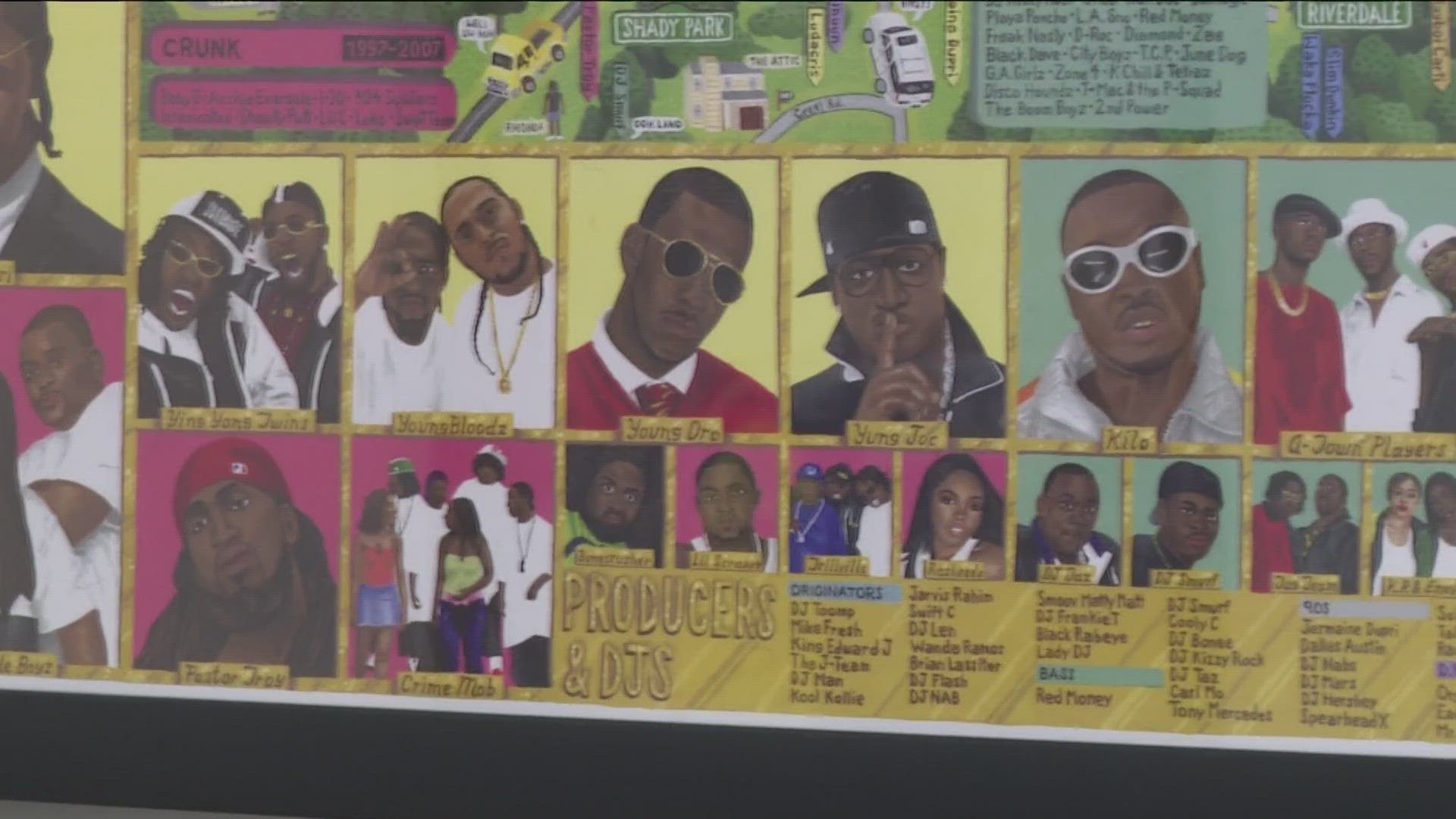History guides our future, and in Atlanta, future generations of leaders are learning from the priceless road maps at Georgia State University.
“We have so many boxes of research,” Brittany Newberry, a Music and Popular Culture Archivist at GSU, said. “We like to tell people it’s eight to nine miles of boxes if you line them up.”
And according to her, that doesn’t include everything digital. This collection encompasses treasures that tell the story of metro Atlanta and the broader community in Georgia.
“We are trying to preserve what we can now because it can be lost.” Newberry said. “We need to make sure it is saved in place where people can access it.”
GSU’s archives and collections cover everything from labor unions to the women’s movement. There is an extensive collection of items from the 1996 Olympics in Atlanta.
One generous donation of treasures came from Ed and Sheila Hula. Their collection contains over 70 boxes of their work as publishers of the Olympics publication Around the Rings based in Atlanta. The Hula’s were journalists and producers for public radio and CNN. The collection covers their work on Atlanta events and the Olympic Games from the 1980s to 2010s.
And though its collection is already larger than life, students and staff have begun compiling for a new archive - hip hop, in honor of the genre's celebration of 50 years.
The first donated item in the collection came from the artist behind the Atlanta Rap Map. Joseph Veazey, the founder of Veazey Studio, created it. The map he created a map artistically displays years of research on the city’s rich hip-hop history.
Veazey worked for three years on meticulous handwritten notes of Atlanta references in hip-hop music, and for Newberry, it's priceless.
“To me that is so special because someone devoted so much time to research hip hop.” She said it’s historically significant for many reasons.“It’s part of the culture and it speaks to social issues, politics, the changing landscapes and gentrification.”
Each piece in GSU collections is a building block of the city and the South, and each new generation can now learn about the treasures and how to preserve them.
They are committed to ensuring recorded history reflects all voices, especially the ones the past left out.
“We are teaching students to preserve those narratives, so they live on for future generations.” Newberry said. “They are here to be discovered not only with students but with the community.”
To celebrate the new Hip Hop Collect, GSU is hosting an event named "The South Got Something to Say”: Preserving Atlanta Hip Hop History. It will be held on Nov. 9 at the Georgia State University Library from 4 p.m. to 9 p.m.
Aside from speakers and workshops about the history of hip hop, attendees can enjoy
- Trivia,
- DJing,
- Graffiti,
- Music sampling,
- Food,
- A discussion on the artwork “The Atlanta Rap Map,” and more.
The project also seeks donations related to Altanta's hip hop history. Help GSU by sharing your story through an oral interview and donating materials. The event will include swag and giveaways, such as recordings, flyers, mixtapes, photographs, posters, magazines, memorabilia and others.
The archives are working to increase the collections and their visibility by actively seeking new collections and financial support. Those interested in supporting the efforts, contact the Library's Director of Development at libdev@gsu.edu. To donate materials or to schedule an oral history interview, contact the Music and Popular Culture Archivist at archives@gsu.edu. Find out more here.

